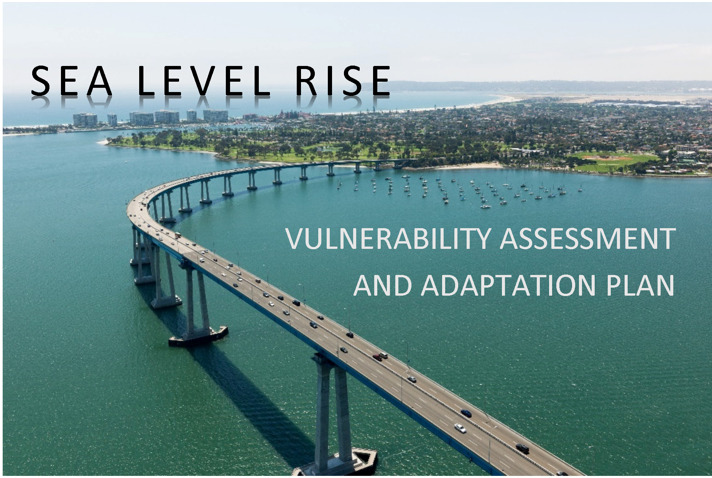On April 21, the City of Coronado hosted a virtual Sea Level Rise Workshop over Zoom.
Community members who live and work in Coronado were encouraged to attend the presentation in order to learn about last year’s Vulnerability Study and the new Adaptation Plan and ask questions after the presentation.
 The meeting was hosted by Jane Thorton, an Associate Planner for the city. The city’s Community Development Director Rich Cano was in attendance to help answer public questions as was the consulting team, composed of Chris Webb and Jake Aikman from Moffat and Nichols, Brenda Dix from ICF and Diane Lyon and Ross Whitehead from PDC.
The meeting was hosted by Jane Thorton, an Associate Planner for the city. The city’s Community Development Director Rich Cano was in attendance to help answer public questions as was the consulting team, composed of Chris Webb and Jake Aikman from Moffat and Nichols, Brenda Dix from ICF and Diane Lyon and Ross Whitehead from PDC.
Thornton also said during the presentation that Coronado would be working with the Navy as well as California State Parks on this project, as the city only controls around 5% of the coastline.
The planning effort is funded by Caltrans and consists of a two phase approach, according to Thorton.
The first half of the plan was the Vulnerability Assessment, released June 2021, which used a model to forecast projected impacts from sea level rise through 2100. The second piece of the plan — the main focus of the workshop — was the newly released Adaptation Plan. The plan contains adaptation strategies for Coronado should sea level rise as expected.
“The main purpose of this process overall is to look ahead roughly 80 years and in order to be able to start a plan for potential sea level rise impacts and aid land use and capital investment decisions,” Thornton said.
The Vulnerability Assessment, which was presented at a workshop last year, looked at sea level rise in equal increments from .8 feet to 4.9 feet. The assessment found, at medium risk aversion, there was a 5% chance of a .8 feet increase by 2030 and a 5% chance of a 4.9 feet increase by 2100. The medium risk aversion table of the assessment was used for the Adaptation Plan.
The plan also assessed the most-at-risk to least-at-risk areas of Coronado. The most-at-risk included the Coronado Yacht Club, SR-75 and the Cays Yacht Club. Least at risk were the D Street Substation, Coronado Beach and lifeguard stations.
The presentation allowed viewer interaction through live online polls, and one poll found that nearly half of those in attendance were very worried about sea level rise and the other half was somewhat worried. A second poll found the greatest concern for attendees was the potential threat to their or their neighbors’ property, closely followed by public safety and local economy.
The Adaptation Plan, Thornton said, contained location-specific and city-wide implementations. However, the potential measures are not tied to specific dates, but rather to what Thorton called “trigger points” in observable sea level rise since there is still a lot of uncertainty around when and how severe sea level rise will be.
The new plan contains five types of adaptation strategies which are applicable citywide. One is adaptive management, which includes continuous monitoring of sea level rise and the joining of FEMA’s Community Rating System. The second strategy type is engineering actions which include “developing sea level rise design guidelines for all city development and citywide operational strategies consisting of enhanced flood warnings.” Third is operational systems which include communicating flood warnings to the public and tracking flood locations. There is also a planning section which encompasses seeking federal and state adaptation funding and “creating incentives for private property owners to implement adaptation strategies which can increase the likelihood of their uptake.” Lastly the plan will focus on community outreach.
Also presented at the workshop were the five categories of potential adaptation strategies which include: hard-engineering, nature-based, operational, planning and managed retreat.
According to the report, these strategies give an “overview of existing conditions and projected coastal hazards at vulnerable areas throughout the City. It includes potential strategies for each area that the city could take to increase resilience of public facilities, infrastructure, and land. These strategies are presented as adaptation pathways, which sequence related strategies to reduce risk efficiently and effectively over time.”
The plan also contains a step-by-step example of a trigger-based adaptation pathway, beginning with the planning strategy of coordinating with stakeholders and ending with the retreat step of relocating from hazards.
Thorton added that some action areas have multiple pathways. For example, one engineering approach could include elevating existing sea walls and roads when necessary. Another is an eventual managed retreat approach.
The project is currently in the midst of a 60 day public review period, where community members can ask questions and address concerns related to the plan. The review period will end on May 18 and the updated documents will be presented to the City Council.
To read the Vulnerability Study and the Adaptation Plan in their entirety click here. For more project updates from the City of Coronado, register your email by visiting the city website at commentcoronado.org/sea-level-rise.




